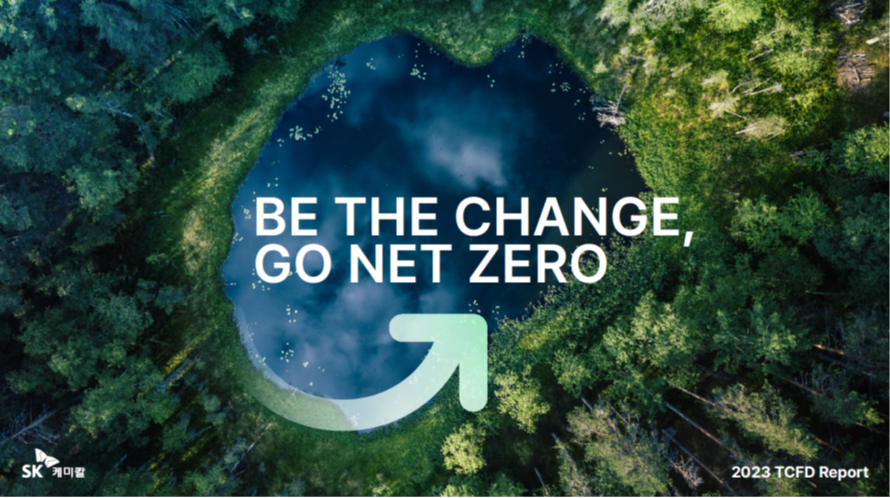- Transitioning to recycled plastic portfolio, establishing a circular economy to achieve Net Zero
- Securing leadership in proactive climate change response... Group’s fifth approval
SK chemicals receives domestic industry’s first independent verification of greenhouse gas reduction methods.
SK chemicals (CEO Ahn Jae-hyun) announced on the 18th that it had obtained approval for its 2032 short-term greenhouse gas reduction targets from the “Science Based Targets initiative (SBTi).”
This is the first time a domestic chemical company has had its greenhouse gas reduction targets verified by SBTi. In the global chemical industry, 109 companies have been approved, with SK chemicals the only domestic chemical company and the fifth within the SK Group to obtain SBTi approval.
SBTi is a global alliance that verifies corporate greenhouse gas reduction targets based on scientific evidence.
Established in 2015 to limit average global temperature rise to 1.5 degrees Celsius in line with the Paris Agreement, SBTi is a partnership between Carbon Disclosure Project (CDP), the United Nations Global Compact (UNGC), World Resources Institute (WRI), and the World Wide Fund for Nature (WWF), with about 6,800 member companies worldwide.
SK chemicals’ greenhouse gas reduction target includes not only direct greenhouse gas emissions (Scope 1) and indirect emissions (Scope 2) from the product production stage, but also emissions from the entire value chain, including the product usage stage (Scope 3).
In accordance with the reduction target, SK chemicals plans to reduce the total amount of direct (Scope 1) and indirect (Scope 2) greenhouse gas emissions from the product production stage by 50.4% and to reduce all other emissions that occur across the value chain (Scope 3) by 30.0% by 2032 compared to 2021 levels.
To achieve this, SK chemicals plans to reduce direct and indirect emissions (Scope 1 & 2) from its sites by improving efficiency in the production process, distributing renewable energy across all sites, and transitioning to eco-friendly fuels like LNG and hydrogen. Aligning with the Circular Recycle plastic business, the plan is also to expand the use of recycled raw materials while increasing the recycling rate of discarded plastics to reduce emissions from the value chain (Scope 3).
SK chemicals expects that the SBTi target approval will serve as a foundation to accelerate the transition to Net Zero (net zero greenhouse gas emissions) by 2040.
Ahn Jae-hyun, CEO of SK chemicals, stated, “We are making continuous efforts and financial commitments in ‘Eco Transition’ to tackle the climate crisis with a sense of responsibility,” and added, “We plan to actively communicate our ESG activities, including the implementation results of climate response strategy tasks, to all stakeholders.”

[Photo description]: Cover of SK chemicals Climate Change Response Report
[Glossary]
- Scope 1: Carbon emissions directly generated from resources owned and managed by the company (boilers, vehicles, etc.)
- Scope 2: Carbon emissions indirectly emitted through consumption of electricity, steam, etc., purchased by the company
- Scope 3: All carbon emissions generated from the entire value chain of the company, including the purchase of raw materials, distribution of products, usage, etc.
- Circular Recycle: SK chemicals “chemical recycling” technology that enables infinite reuse by breaking down waste plastic to the molecular level and remanufacturing it into raw materials. Compared to the “mechanical recycling” method that cleans or cuts waste plastic into smaller sizes (flake form) for reuse, chemical recycling maintains high-quality properties and safety